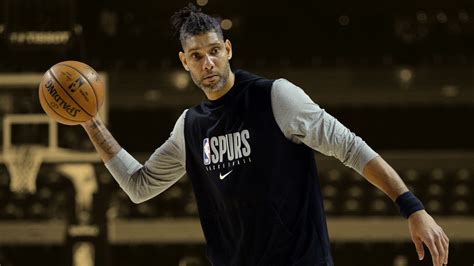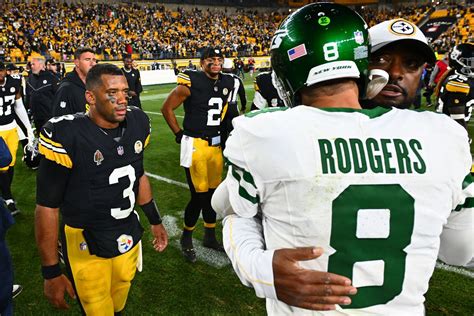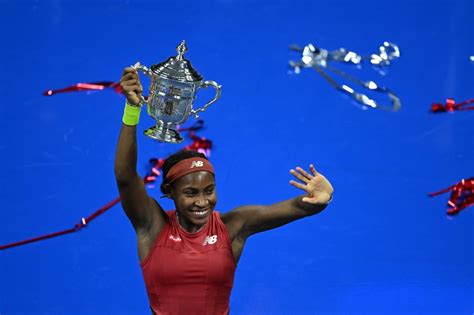
Tim Duncan, the legendary San Antonio Spurs power forward, didn’t mince words when dissecting the modern NBA, expressing his significant dissatisfaction with the current state of the game in a recent interview. Duncan, known for his fundamental approach and understated demeanor, revealed a surprising level of discontent, stating, “There’s a lot of things I hate about it,” signaling a stark contrast to the evolving style of play that emphasizes perimeter shooting and pace over traditional post play.
Duncan’s critique centers on the diminishing role of traditional big men and the over-reliance on three-point shooting, a departure from the physical, inside-out game that defined his era. He expressed concerns that the emphasis on offensive fireworks has overshadowed the importance of defense, rebounding, and fundamental skills, leading to a less balanced and, in his view, less compelling product on the court. While he acknowledged the evolution of the game is inevitable, he lamented the extent to which the core principles of basketball have been compromised.
Duncan’s Discontent: A Deep Dive
Tim Duncan’s comments offer a glimpse into the mind of a basketball purist who values fundamental skills and team-oriented play. His critique raises important questions about the direction of the NBA and the trade-offs that have been made in pursuit of higher scoring and increased entertainment value.
“There’s a lot of things I hate about it,” Duncan stated, encapsulating his frustration. He elaborated that the league has become too perimeter-oriented, with less emphasis on interior play, defense, and rebounding. The statistical revolution that has swept through the NBA has led teams to prioritize three-point shots and layups, often at the expense of mid-range jumpers and post-up opportunities. This shift has fundamentally altered the roles of big men, who are now often required to stretch the floor and shoot from beyond the arc, rather than dominating the paint.
Duncan’s era was characterized by bruising battles in the paint, meticulous execution of offensive sets, and a relentless commitment to defense. The Spurs, under the guidance of Gregg Popovich, exemplified these values, winning five NBA championships with a core group of players who prioritized team success over individual accolades. Duncan, along with Tony Parker and Manu Ginobili, formed a formidable trio that consistently outmaneuvered opponents with their superior understanding of the game and unwavering dedication to fundamental basketball.
The modern NBA, by contrast, is dominated by individual brilliance and high-octane offenses. Players like LeBron James, Stephen Curry, and Kevin Durant have redefined the game with their exceptional athleticism, shooting range, and scoring prowess. While these players are undeniably talented, Duncan’s concern is that their individual dominance has come at the expense of team play and fundamental skills.
The Evolution of the NBA: A Statistical Perspective
The NBA has undergone a dramatic transformation over the past two decades, driven in large part by the proliferation of advanced statistical analysis. Teams now have access to a vast array of data that allows them to evaluate player performance, optimize offensive strategies, and identify defensive weaknesses. This data-driven approach has led to a greater emphasis on efficiency, with teams seeking to maximize their points per possession.
One of the most significant consequences of this statistical revolution has been the increased reliance on three-point shooting. Research has shown that three-point shots are, on average, more efficient than mid-range jumpers, leading teams to encourage their players to shoot from beyond the arc whenever possible. This trend has transformed the role of big men, who are now often required to develop three-point shooting skills in order to remain relevant in the modern NBA.
The emphasis on three-point shooting has also had a significant impact on the pace of the game. Teams are now playing at a faster tempo, pushing the ball up the court and attempting to score in transition whenever possible. This fast-paced style of play has led to higher scoring games and increased entertainment value, but it has also raised concerns about the impact on player conditioning and the potential for injuries.
The Diminishing Role of Big Men
Tim Duncan’s concerns about the diminishing role of big men are shared by many observers of the game. In the past, dominant centers and power forwards were essential to championship contention. Players like Bill Russell, Wilt Chamberlain, Kareem Abdul-Jabbar, and Shaquille O’Neal controlled the paint, dominated the boards, and provided a formidable defensive presence.
However, in the modern NBA, the emphasis on perimeter play has reduced the importance of traditional big men. Teams are now more likely to prioritize players who can shoot from beyond the arc, handle the ball, and defend multiple positions. As a result, many traditional centers have been relegated to bench roles, while others have been forced to adapt their games to the demands of the modern NBA.
Some big men have successfully transitioned to the modern NBA by developing three-point shooting skills. Players like Brook Lopez, Kristaps Porzingis, and Karl-Anthony Towns have become valuable contributors to their teams by spacing the floor and providing an offensive threat from beyond the arc. However, other big men have struggled to adapt, finding themselves unable to compete with the athleticism and versatility of their perimeter-oriented counterparts.
The Impact on Defense and Fundamentals
Duncan also expressed concerns about the impact of the modern NBA on defense and fundamental skills. He believes that the emphasis on offense has led to a decline in defensive intensity and a neglect of basic skills like rebounding, passing, and footwork.
In the past, teams like the Detroit Pistons, Chicago Bulls, and San Antonio Spurs built their success on a foundation of defensive toughness and fundamental execution. These teams prioritized stopping their opponents, controlling the boards, and executing their offensive sets with precision. However, in the modern NBA, defense is often an afterthought, with teams focusing primarily on outscoring their opponents.
The decline in defensive intensity has also been attributed to rule changes that have made it more difficult for defenders to impede offensive players. The elimination of hand-checking and the emphasis on freedom of movement have made it easier for offensive players to drive to the basket and create scoring opportunities.
The Debate Over Entertainment Value
The evolution of the NBA has sparked a debate over the trade-offs between entertainment value and fundamental basketball. Some observers argue that the modern NBA is more exciting and entertaining than ever before, with its high-scoring games, spectacular dunks, and long-range shooting displays. Others argue that the emphasis on offense has come at the expense of defense, fundamentals, and team play.
Those who favor the modern NBA argue that the game has become more accessible to a wider audience. The fast-paced style of play and the emphasis on individual brilliance make it easier for casual fans to follow the game and appreciate the skills of the players. The increased use of social media and other digital platforms has also made it easier for fans to connect with their favorite players and teams.
However, those who lament the changes argue that the modern NBA has lost some of its soul. They believe that the emphasis on offense has diminished the importance of defense, fundamentals, and team play. They also argue that the increased focus on individual accolades has undermined the sense of camaraderie and shared purpose that once characterized the league.
The Future of the NBA
The future of the NBA remains uncertain. The league is constantly evolving, and it is impossible to predict with certainty what the game will look like in the years to come. However, it is clear that the trends that have shaped the modern NBA are likely to continue, with teams placing a greater emphasis on three-point shooting, pace, and individual brilliance.
It is also likely that the role of big men will continue to evolve. While traditional centers may become increasingly rare, big men who can shoot from beyond the arc, handle the ball, and defend multiple positions will continue to be highly valued. The league may also see the emergence of new hybrid positions, with players who can seamlessly transition between the perimeter and the interior.
Ultimately, the future of the NBA will depend on the choices that are made by the players, coaches, and executives who shape the game. It is up to them to strike a balance between entertainment value and fundamental basketball, ensuring that the league remains both exciting and true to its core principles.
The Spurs Legacy and Duncan’s Influence
Tim Duncan’s critique gains significant weight when considered in the context of his illustrious career with the San Antonio Spurs. The Spurs, under the guidance of Gregg Popovich, built a dynasty on fundamental basketball, team-oriented play, and a commitment to defense. Duncan was the embodiment of these values, consistently putting the team first and leading by example.
The Spurs’ success during Duncan’s era was a testament to the power of fundamental basketball. They consistently outmaneuvered their opponents with their superior understanding of the game, their meticulous execution of offensive sets, and their unwavering dedication to defense. They were a team that valued substance over style, and their success proved that fundamental basketball could still win championships in the modern NBA.
Duncan’s influence on the game extends beyond his on-court accomplishments. He is widely respected for his humility, his work ethic, and his commitment to the community. He is a role model for young players, demonstrating that success can be achieved through hard work, dedication, and a willingness to put the team first.
Responses from League Insiders and Players
Duncan’s critique has spurred debate among current and former NBA players, coaches, and analysts. Some agree with Duncan’s assessment, pointing to the perceived decline in defensive intensity and the over-reliance on three-point shooting. Others argue that the evolution of the game is a natural process and that the modern NBA is more exciting and entertaining than ever before.
“I think there’s some truth to what Tim is saying,” said one NBA coach, speaking on condition of anonymity. “The game has definitely changed, and there’s a lot more emphasis on offense than there used to be. But I also think that the players are more skilled than ever before, and the game is more exciting to watch.”
Another former player, who also requested anonymity, said that he misses the physicality of the game during Duncan’s era. “It was a lot tougher back then,” he said. “You could really bang bodies and get away with a lot more. Now, it’s all about finesse and shooting threes.”
Current players have also weighed in on the debate. Some have defended the modern NBA, arguing that the increased emphasis on offense has made the game more entertaining for fans. Others have acknowledged that there is room for improvement in terms of defense and fundamental skills.
The Broader Implications
Duncan’s comments extend beyond the specific criticisms of the modern NBA. They raise broader questions about the role of tradition in sports, the balance between entertainment and competition, and the values that should be prioritized in the pursuit of success.
In a world that is constantly changing, it is important to preserve the core principles that have made sports so compelling for generations. While innovation and adaptation are essential, it is also important to remember the values of hard work, dedication, teamwork, and sportsmanship.
Duncan’s critique serves as a reminder that success should not come at the expense of these values. It is a call for a more balanced approach to the game, one that values both entertainment and fundamental basketball.
FAQ: Tim Duncan’s Dislike of the Modern NBA
1. What are Tim Duncan’s main complaints about the modern NBA?
Tim Duncan primarily dislikes the modern NBA due to the over-reliance on three-point shooting and the diminishing role of traditional big men. He feels the game has become too perimeter-oriented, with less emphasis on interior play, defense, and rebounding, leading to a less balanced style of basketball.
2. How does Duncan’s perspective relate to his own playing career?
Duncan’s perspective is deeply rooted in his experiences with the San Antonio Spurs, where he and coach Gregg Popovich emphasized fundamental basketball, team-oriented play, and defensive intensity. His career was built on a foundation of interior dominance, meticulous execution, and a commitment to defense, which contrasts sharply with the modern NBA’s focus on offense and perimeter play.
3. What statistical trends support Duncan’s critique?
The increased emphasis on three-point shooting is supported by statistical trends showing a significant rise in three-point attempts and makes over the past two decades. Advanced statistical analysis has driven teams to prioritize efficiency, leading to more three-point shots and layups, often at the expense of mid-range jumpers and post-up opportunities.
4. How have NBA rule changes affected the game, according to Duncan’s perspective?
Duncan’s perspective suggests that rule changes, such as the elimination of hand-checking and the emphasis on freedom of movement, have contributed to a decline in defensive intensity. These changes have made it easier for offensive players to drive to the basket and create scoring opportunities, potentially at the expense of defensive prowess.
5. What are some potential long-term implications of the trends Duncan dislikes?
The long-term implications of the trends Duncan dislikes include a potential loss of fundamental skills, diminished defensive intensity, and a homogenization of player roles, particularly for big men. This could also affect the competitive balance and the overall aesthetic of the game, shifting away from a balance between offense and defense towards a more entertainment-focused product.
In Conclusion
Tim Duncan’s critique of the modern NBA is a thoughtful and well-reasoned assessment of the game’s evolution. While his perspective may not be shared by everyone, it raises important questions about the direction of the league and the values that should be prioritized in the pursuit of success. His comments serve as a reminder that fundamental basketball, team-oriented play, and a commitment to defense are essential ingredients for sustained success, and that the pursuit of entertainment should not come at the expense of these core principles. His legacy as a player and his insightful critique of the modern game ensure that his voice will continue to resonate within the NBA community for years to come. The debate he has ignited will undoubtedly influence the ongoing evolution of the game, as players, coaches, and executives grapple with the challenge of balancing entertainment value with the fundamental principles of basketball.









